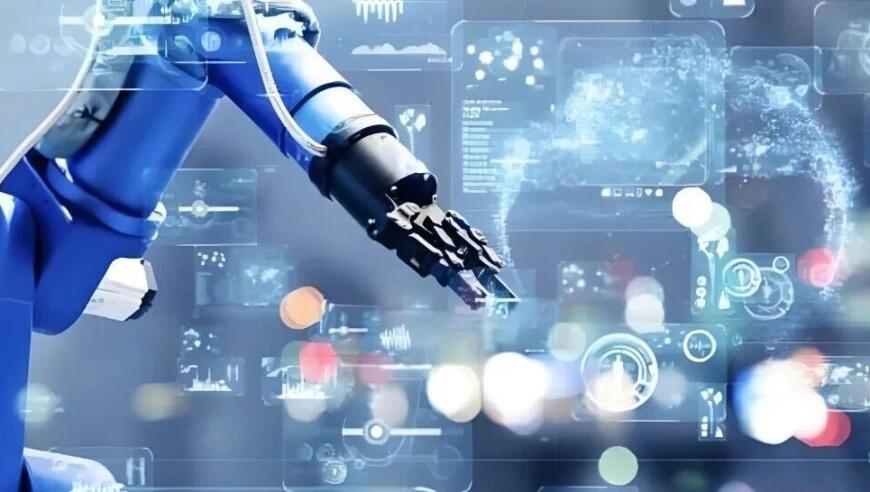
Countless AI agents are transitioning from isolation to collaboration, and a technological revolution driven by interoperability is quietly unfolding.
Imagine such a scenario: In the early morning, a single verbal command from you can mobilize multiple AI systems to work in synergy. Your home's intelligent assistant seamlessly connects with your company's schedule management system, and self-driving cars interact in real time with the city's traffic control center. Behind these scenarios lies a breakthrough in a key challenge in the field of artificial intelligence—AI interoperability.
As technologies like large language models advance by leaps and bounds, various AI agents have emerged like mushrooms after rain. However, the "language barrier" between them has become a bottleneck restricting development.
In the current AI ecosystem, there is a severe issue of "interaction fragmentation" between different agent systems. Just as the early Internet faced fragmented communication standards, today's AI agent ecosystem is also plagued by the dilemma of inconsistent protocols. The team from Shanghai Jiao Tong University pointed out in the report A Survey of AI Agent Protocols that with the expansion of application scenarios and the emergence of agents from different suppliers and with different structures, the interaction rules between agents and entities have become increasingly complex. This lack of standardization poses a twofold obstacle: on the one hand, it hinders the interoperability between agents and external tools as well as data sources; on the other hand, it limits the seamless collaboration between agents from different providers or with different architectural backgrounds.
This problem is particularly prominent in the corporate and scientific research fields. While the speed and scale of data and information flow continue to grow, "silos" often form between different platforms and technologies, preventing various agents from achieving efficient interconnection and data sharing.
Faced with this challenge, the technology community is taking active action. In April 2025, Google officially launched the A2A Protocol—an open agent protocol supported by Google and over 50 technology partners. A2A aims to enhance the cross-platform capabilities of agents through standardization, thereby addressing the interoperability issues of enterprise-level AI. Almost simultaneously, Anthropic's MCP (Modular Collaboration Platform) gained rapid popularity. Through a modular design, MCP decomposes AI systems into independent modules such as data processing, model training, and inference services, with each module enabling "plug-and-play" functionality via standardized protocols.
This decoupled architecture offers three core advantages: dynamic scalability, cross-framework compatibility, and efficient data transmission.
In the industrial sector, the call for collaborative development is growing stronger. In August 2025, the China Electronics Standardization Institute, together with more than 80 universities, enterprises, research institutions, and end-users, officially released the Joint Initiative for Co-construction and Sharing of Agent Protocols. This initiative aims to build industry consensus and establish a unified, open, secure, and efficient agent industry ecosystem.
The value of AI interoperability has already been demonstrated in multiple fields. In scientific research, the "Shusheng" Scientific Discovery Platform (Intern-Discovery) launched by the Shanghai Artificial Intelligence Laboratory provides one-stop support for the entire scientific research process—integrating human-machine collaboration and the unification of data and computing—through model sharing, data interconnection, and facility interlinking.
The platform integrates and shares a general-specialized integrated foundation model and professional scientific research agents in multiple fields such as physics, chemistry, materials science, biology, and geoscience. Researchers can mobilize multiple specialized agents and combine general models with professional scientific agents to help identify potential scientific laws from massive amounts of data. At the enterprise development level, the ACP (Agent Communication Protocol) Short Course launched by DeepLearningAI in June 2025 provides a unified communication standard for the development of multi-agent AI systems. It solves the problems of customized development and frequent reconstruction required when integrating agents across teams and multiple frameworks. By standardizing the communication methods between agents, the ACP protocol significantly reduces the complexity and operation and maintenance costs of cross-platform AI system development.
Despite significant progress, AI interoperability still faces numerous challenges. Balancing standardization and differentiation, developing dynamic security mechanisms, and addressing ecosystem governance issues are all obstacles that need to be overcome.
In the medium term, we will witness a shift from rules to ecosystems, including breakthroughs in built-in protocol knowledge and layered protocol architectures. In the long run, AI interoperability will drive a transformation from protocols to intelligent infrastructure, with collective intelligence, scaling laws, and agent data networks becoming key research directions.
Just as the standardization of TCP/IP and HTTP protocols drove the global information revolution, a unified AI agent protocol is expected to spawn an entirely new era of intelligent collaboration. Different forms of intelligence will flow between systems, and tools will interact seamlessly with agents, forming collective intelligence that surpasses the capabilities of individual components. When AI systems truly achieve interoperability, what we will embrace is not only an improvement in efficiency but also a fundamental transformation in the way humans collaborate with machines.
In this future, artificial intelligence will no longer be an isolated tool but will become an intelligent companion that is ubiquitous and naturally integrated into our lives.

The United States announced on Monday its commitment to provide 1.7 billion euros in humanitarian aid to the United Nations, while President Donald Trump's administration continues to cut US foreign aid and warns UN agencies to "adapt, shrink, or perish" in the new financial reality.
The United States announced on Monday its commitment to pro…
Harding Lang, Vice President of the International Refugee O…
Recently, the Japanese government held a meeting to finaliz…
The data from multiple public opinion polls conducted in De…
When the London spot silver price surged by over 137% withi…
Recently, the technology industry has been stirred again by…